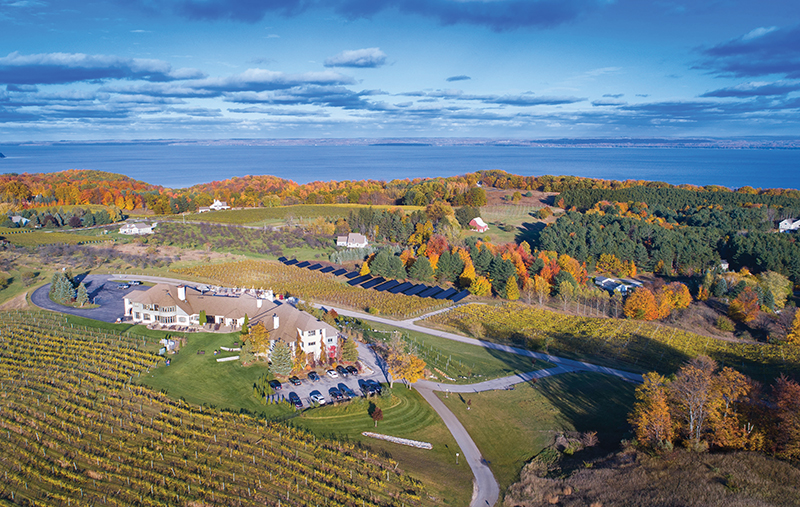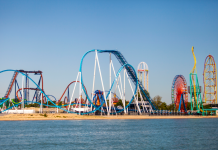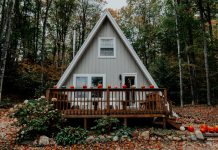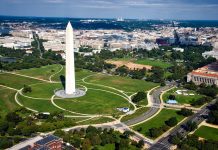
At summer’s start, Alex Dingrando feared the pandemic would swap tourists for tumbleweeds in Traverse City, where the former metro Detroit nurse had just launched a water sports rental business.
To his welcome astonishment, though, his PlayNorth Watersports startup did just fine. Despite needing to mask up and socially distance themselves from others, enough tourists still showed up to keep Dingrando’s gig afloat. “July hit, and it was like the whole floodgates were open,” he says. “People were just out here. It came out so well. We still can’t even believe it.”
Dingrando was among northern Michigan entrepreneurs and business observers introduced to Hour Detroit readers in July, when the region’s seasonal tourist-based economy faced possible ruin amid the coronavirus pandemic.
The consensus at summer’s end: It wasn’t too bad. It could have been worse. We’ll survive and be back next summer.
“I don’t think I could be expecting anything more than the luck that we have had,” says Marie-Chantal Dalese, CEO of Chateau Chantal Winery and Inn on Old Mission Peninsula. “Back in April, so much uncertainty existed: ‘Are people going to travel? Are they going to spend any money?’”
“We’ve been pleasantly surprised by the fact that the answer to all those things in our experiences is yes.”
Overall regional economic data was not yet available, but Trevor Tkach, president and CEO of Traverse City Tourism, says the region’s COVID slump was nothing like the damage everyone expected. “May was miserably low, June started picking up toward the end, and July and August [were] even better,” he says. “We’re still well behind 2019 numbers, but we’re moving in the right direction.”
As it happens, many of the outdoor activities people flock Up North for — boating, biking, hiking, camping, and such — are easy to enjoy while social distancing.
“People felt safer going up and doing something like that than they would going to downtown Detroit and taking part in a Detroit Lions game,” says Jeffery Elsworth, a board member of the Michigan Restaurant & Lodging Association and an associate professor of hospitality business entrepreneurship at Michigan State University. “And it’s been that way before COVID. That’s why people went up there, right? To get away.”
Also, tourists grateful to be sprung from the stay-at-home orders of spring played nice when it came to the byzantine rules imposed to prevent the spread of COVID-19.
“So 99.9 percent of our guests have been very empathetic to the new norm,” says Chris Fredrickson, co-founder and distiller at Traverse City Whiskey Co. “Generally speaking, people have been very understanding and almost eager to change the behavior of how a normal bar and restaurant is run and maintained. There have been a couple of hiccups where there’s been — I call it ‘additional education’ — from our staff to our guests.”
Challenges remain. Tkach says cooler fall and winter weather will restrict outdoor hospitality options. Elsworth added that another uncertain summer could be ahead, given that health experts are unsure when a COVID-19 vaccine will be available and whether it will be widely available and accepted. A full recovery in the hospitality and restaurant sectors may not come before 2022.
Still, Dingrando is ready to return next year: “Oh, yeah. We’ll be here.”
|
|
|









